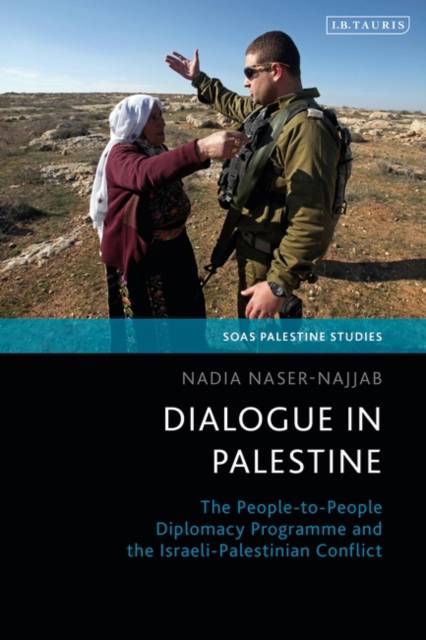
- Retrait gratuit dans votre magasin Club
- 7.000.000 titres dans notre catalogue
- Payer en toute sécurité
- Toujours un magasin près de chez vous
- Retrait gratuit dans votre magasin Club
- 7.000.0000 titres dans notre catalogue
- Payer en toute sécurité
- Toujours un magasin près de chez vous
Dialogue in Palestine
The People-To-People Diplomacy Programme and the Israeli-Palestinian Conflict
Nadia Naser-NajjabDescription
Since 1993, various international donors have poured money into a People-to-People (P2P) diplomacy programme in Palestine. This grassroots initiative - still funded by prominent external donors today - seeks to foster public engagement through contact and therefore remove deeply embedded barriers.
This book examines the limited nature of this 'contact' and explains why the P2P framework, which was ostensibly concerned with the promotion of peace, ultimately served to reinforce conflict and power relations. The book is based on the author's own experience of the solidarity activities during the First Intifada and her first-hand involvement as a coordinator of the P2P projects implemented during the 1990s. It provides a much-needed critical account of the internationally-sponsored peace process and develops new theoretical analyses of settler colonialism.
Spécifications
Parties prenantes
- Auteur(s) :
- Editeur:
Contenu
- Nombre de pages :
- 248
- Langue:
- Anglais
- Collection :
Caractéristiques
- EAN:
- 9781838603847
- Date de parution :
- 23-01-20
- Format:
- Livre relié
- Format numérique:
- Genaaid
- Dimensions :
- 160 mm x 234 mm
- Poids :
- 476 g







